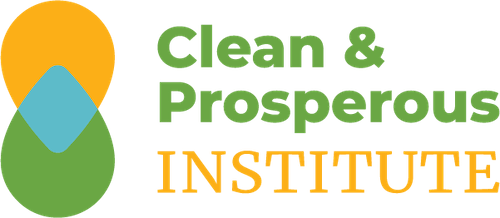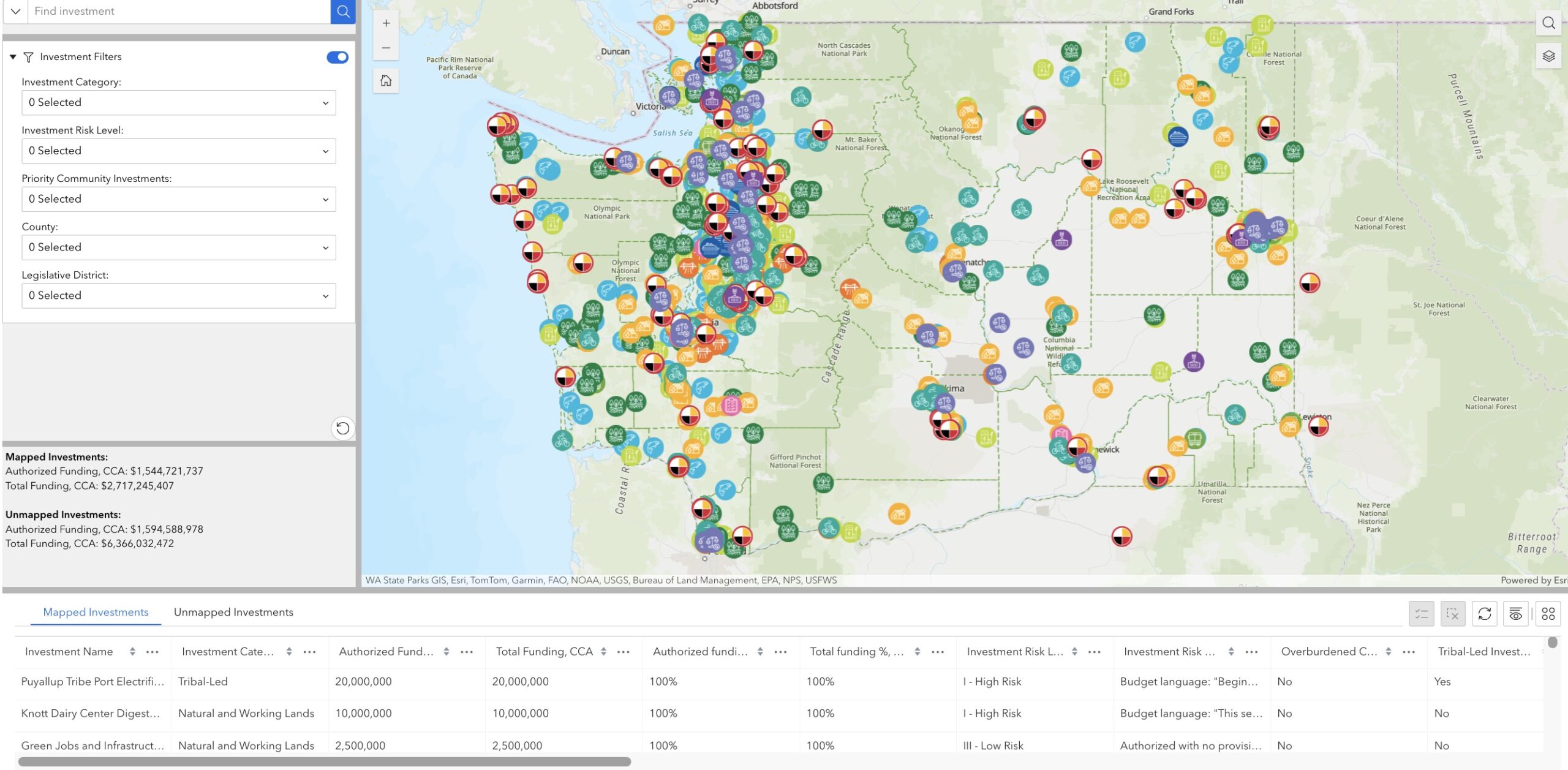FOR IMMEDIATE RELEASE
Media Contact:
Lee Keller
Call or text: 206.799.3805
[email protected]
ONLINE MAP ADDS HUNDREDS MORE STATEWIDE PROJECTS AT RISK
Salmon Habitat to EV Charging stations & more are being threatened
Seattle, WA [August 14, 2024] Clean & Prosperous Institute has updated the The Risk of Repeal mapping tool to add more than 500 new projects, totalling $450 million, increasing the on-the-ground Climate Commitment Act investments which exist in all 39 Washington state counties.
The full slate of projects tracked on the Risk of Repeal map and dataset, total more than $9 billion and rely on the Climate Commitment Act continuing to fund them.
The newly-mapped, location-specific investments, stretching across Washington and totalling $450M, include additional air quality monitoring stations in overburdened communities, restored salmon habitat, special needs transit grants, Tribal clean energy grants, community decarbonization efforts, home energy and appliance rebates, community electric vehicle charging sites, on-farm greenhouse gas reduction grants, and more.
“The Climate Commitment Act faces many challenges that could significantly weaken or fully repeal it, whether by Legislative or Executive action or at the ballot box,” said Kevin Tempest, the Institute’s Research Director. “With this map tool, Clean & Prosperous Institute is shining a critical spotlight on the investments that CCA dollars are making into communities spanning every county in the state.”
“Investments enabled by the Climate Commitment Act are growing every month and in every county,” continued Tempest. “They are lowering the cost of clean energy for households and businesses, protecting key forest and fish habitat, catalyzing innovation, and providing an economic engine to power our communities toward a clean energy future.”
Tempest went on to emphasize that projects large and small dot the landscape, from forest and fish protection in Aberdeen to large-scale solar innovation in Walla Walla. “Whether electrifying ferry routes or rapidly expanding EV charging availability statewide, these investments are revitalizing infrastructure and creating new job opportunities in every county.”
For a deeper look at the Climate Commitment Act investments, spanning every county from Adams to Yakima, county summaries, are also available on the website, highlighting CCA dollars allocated, high-risk projects, future funding, and more. Additionally, project “one-pagers” are being added weekly, further detailing the impact ofCCA funding.
The Risk of Repeal map tool offers transparency and clarity, allowing users to explore where Climate Commitment Act revenues are being invested while identifying projects and programs at risk of losing funding. It categorizes projects based on risk levels, from high-risk investments directly funded by the Climate Commitment Act to minimal-risk initiatives nearing completion. By providing relevant information and key context, the tool empowers stakeholders to understand the current scope of investments and potential risk if the act is repealed.
“Our goal is to ensure that these investments are visible and accurately tracked,” said Tempest. “This interactive mapping tool is a vital resource for all Washingtonians to understand that Climate Commitment Act investments are increasingly putting shovels in the ground to deliver benefits to communities in every county across the state.”
For more information and to access the Risk of Repeal map tool, visit Risk of Repeal: Mapping Washington’s Climate Commitments.
Media, please contact Lee Keller at [email protected] or Danielle Mercure at [email protected].
More About Clean & Prosperous Institute
The Clean & Prosperous Institute (formerly the Low Carbon Prosperity Institute) works to responsibly tackle climate change and carbon reduction at the state level. We leverage resources, prioritize truth-telling, and strive for improved government and private-sector collaboration. Our core focus is system design, delivering technically accurate, long-term greenhouse gas reduction strategies that guide policy decisions. We thoroughly explore opportunities and complex risk factors associated with crafting climate policy from the state level upward. We strongly believe in the power of business leadership, bipartisan problem-solving, and data-driven public policy.
###

